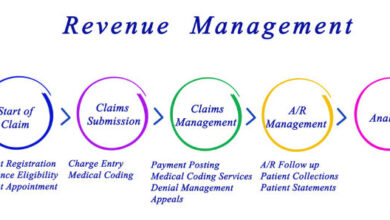Navigating NDIS: Understanding CPAP Support for Participants

The National Disability Insurance Scheme (NDIS) in Australia supports people with disability, their families, and carers. It is an essential scheme that helps thousands of Australians with a significant and permanent disability. A critical aspect of the NDIS is its funding for support and services, including necessary medical equipment like Continuous Positive Airway Pressure (CPAP) devices. This article will delve into the nuances of CPAP support under NDIS, an essential facet of the scheme for participants who require assistance with sleep apnea or other related conditions.
What is CPAP?
Continuous Positive Airway Pressure (CPAP)
CPAP therapy uses mild air pressure to keep the airways open. It is commonly used to treat breathing problems, such as sleep apnea. Sleep apnea is a common sleep disorder in which an individual’s breathing is interrupted during sleep. People with untreated sleep apnea stop breathing repeatedly during their sleep, sometimes hundreds of times during the night. There are several types of sleep apnea, but the most common is obstructive sleep apnea. This type of apnea occurs when the muscles in the back of your throat fail to keep the airway open despite the effort to breathe. A CPAP machine is often prescribed to people with sleep apnea to ensure a steady flow of air keeps the airways open, and the individual can have a restful night’s sleep.
NDIS and CPAP Support
Is CPAP Covered Under NDIS?
The short answer is yes. CPAP machines and accessories are considered Assistive Technology (AT) under the NDIS. AT is any device or system that allows individuals to perform tasks they would otherwise be unable to do or increases the ease and safety with which studies can be achieved. To receive funding for a CPAP machine or related accessories under the NDIS, the equipment must be deemed “reasonable and necessary” for the participant’s needs. This means that the equipment or modifications are necessary for the participant to lead an ordinary life and represent value for money.
How to Access CPAP Support Through NDIS
Accessing CPAP support through the NDIS involves several steps. Here is a step-by-step guide:
- Assessment: The first step in accessing CPAP support through the NDIS is to undergo a thorough evaluation by a qualified healthcare professional, such as a sleep specialist. This assessment will determine if a CPAP machine is the ‘reasonable and necessary’ support for managing your sleep apnea or other related conditions.
- NDIS Plan: If you are not already an NDIS participant, you must apply for the NDIS. If you are already a participant, ensure that your current plan includes funding for the ‘Capital Supports’ budget, which covers Assistive Technology (AT).
- Request: Request CPAP support by submitting the required documents, including the assessment from your healthcare professional and a quote for the CPAP machine and related accessories.
- Approval: Once the NDIS has reviewed your request and deemed the CPAP machine and accessories as ‘reasonable and necessary,’ they will include it in your NDIS plan, and you will receive funding.
- Purchase: Once you have received approval and funding from the NDIS, you can purchase the CPAP machine and related accessories.
Remember, it is essential to maintain regular communication with your NDIS planner or support coordinator throughout this process. They can provide guidance and support in navigating the NDIS and accessing the CPAP support you require. Your NDIS planner or support coordinator is crucial in helping you understand your plan and funding and assisting with any necessary adjustments or modifications. They are well-versed in the nuances of the NDIS and can help you navigate the paperwork, approvals, and purchases required to get the necessary CPAP support. Additionally, maintaining regular communication with your planner or support coordinator ensures that they are informed of any changes in your condition, needs, or circumstances that may affect your NDIS plan or the support you require. Keeping the lines of communication open ensures you receive the most appropriate and timely support.
Conclusion
Accessing CPAP support through the NDIS can be a critical step towards managing sleep apnea and improving overall health and well-being. Understanding the process involved in accessing this support and maintaining open communication with your healthcare providers and NDIS planner or support coordinator is essential. With the correct help and equipment, individuals can manage their sleep apnea effectively and lead healthier, more fulfilling lives. Accessing CPAP NDIS support may seem daunting initially, but with the proper guidance and communication, it can be navigated smoothly to secure the necessary equipment and support.
The NDIS is crucial in providing the necessary support and funding for CPAP machines and accessories, which can significantly improve the quality of life for individuals with sleep apnea. Understanding the process involved in accessing this support and maintaining open communication with your healthcare providers and NDIS planner or support coordinator is essential. With the proper help and equipment, individuals can manage their sleep apnea effectively and lead healthier, more fulfilling lives.



